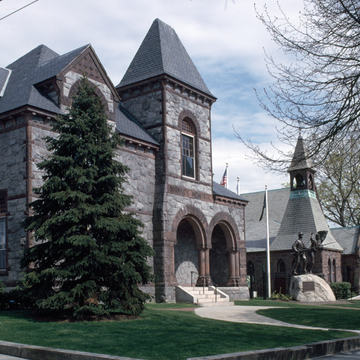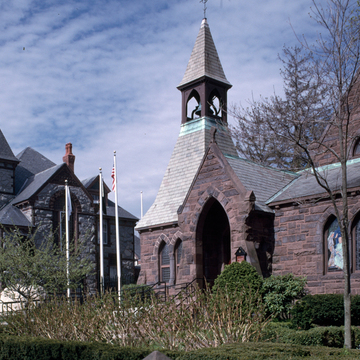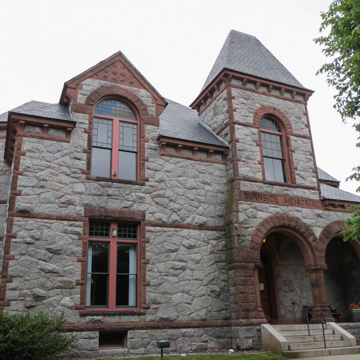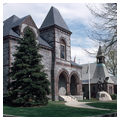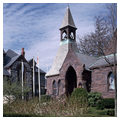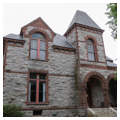American architects could always replicate the forms of H. H. Richardson's Romanesque Revival, but seldom their spirit. With its simplified silhouette, strong hipped roof and rugged walls, Burnside Memorial Hall strains for Richardson's sublime simplicity, but it also shows the raucousness and nervous energy of an architect whose training was in the Gothic Revival. Architect Stephen C. Earle, practicing in Worcester, had a lucrative practice in small libraries, examples of which survive in Norton, Massachusetts; Groton, Connecticut; and at Grinnell College in Iowa. Burnside Hall is the third of his buildings in Bristol.
Earle's program was to combine a town hall with a memorial to Major General Ambrose E. Burnside, Civil War hero, thrice governor of Rhode Island, and later United States senator, who died in 1881. The centerpiece of Burnside Memorial Hall was to be a statue of the general on its porch, long since removed from the building. Likewise, town offices were removed from the building in 1969, and it now serves purely as a memorial. Together with St. Michael's parish house next door, it forms a lively Victorian interlude in the clapboarded classicism of Hope Street.






